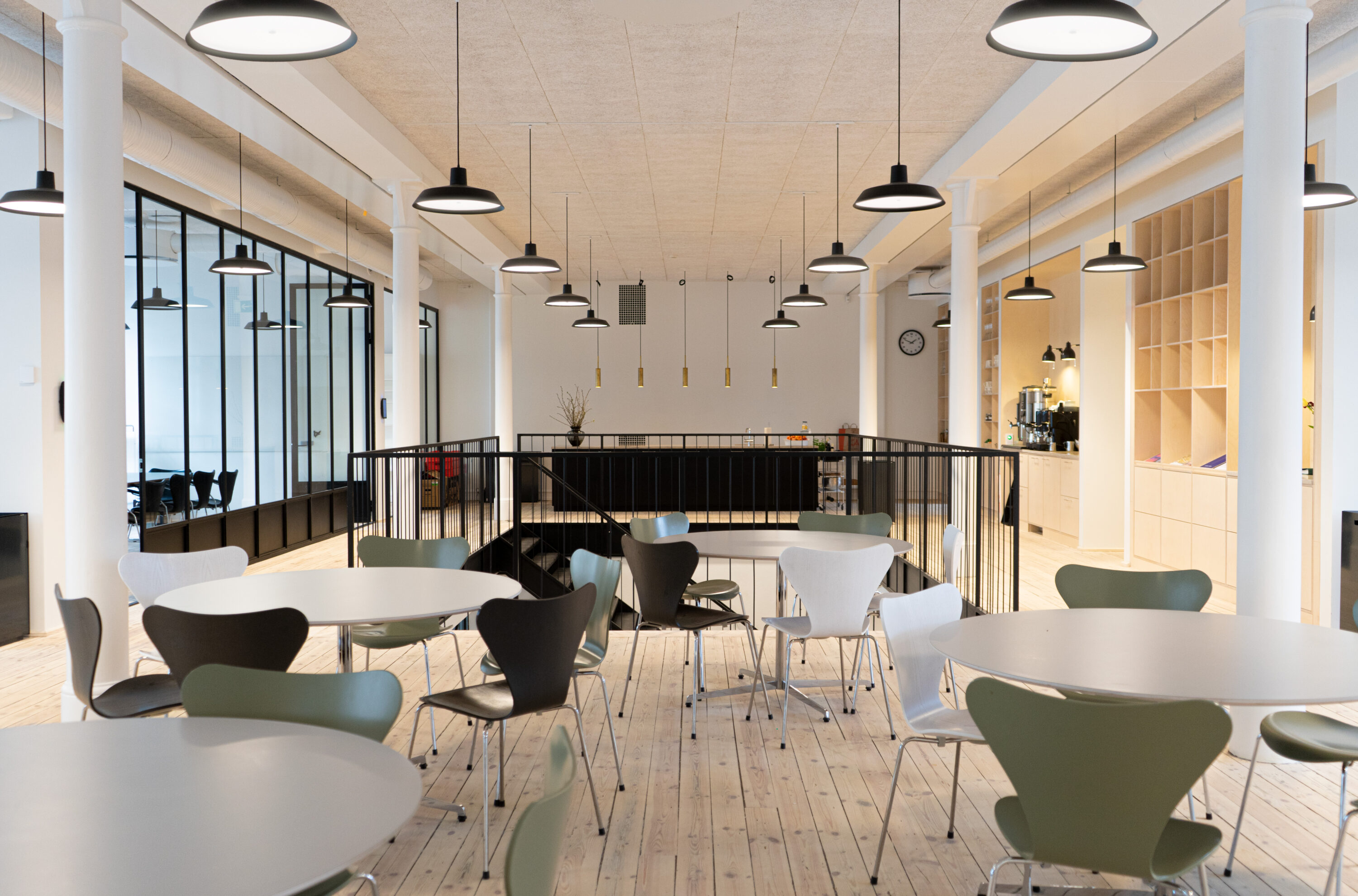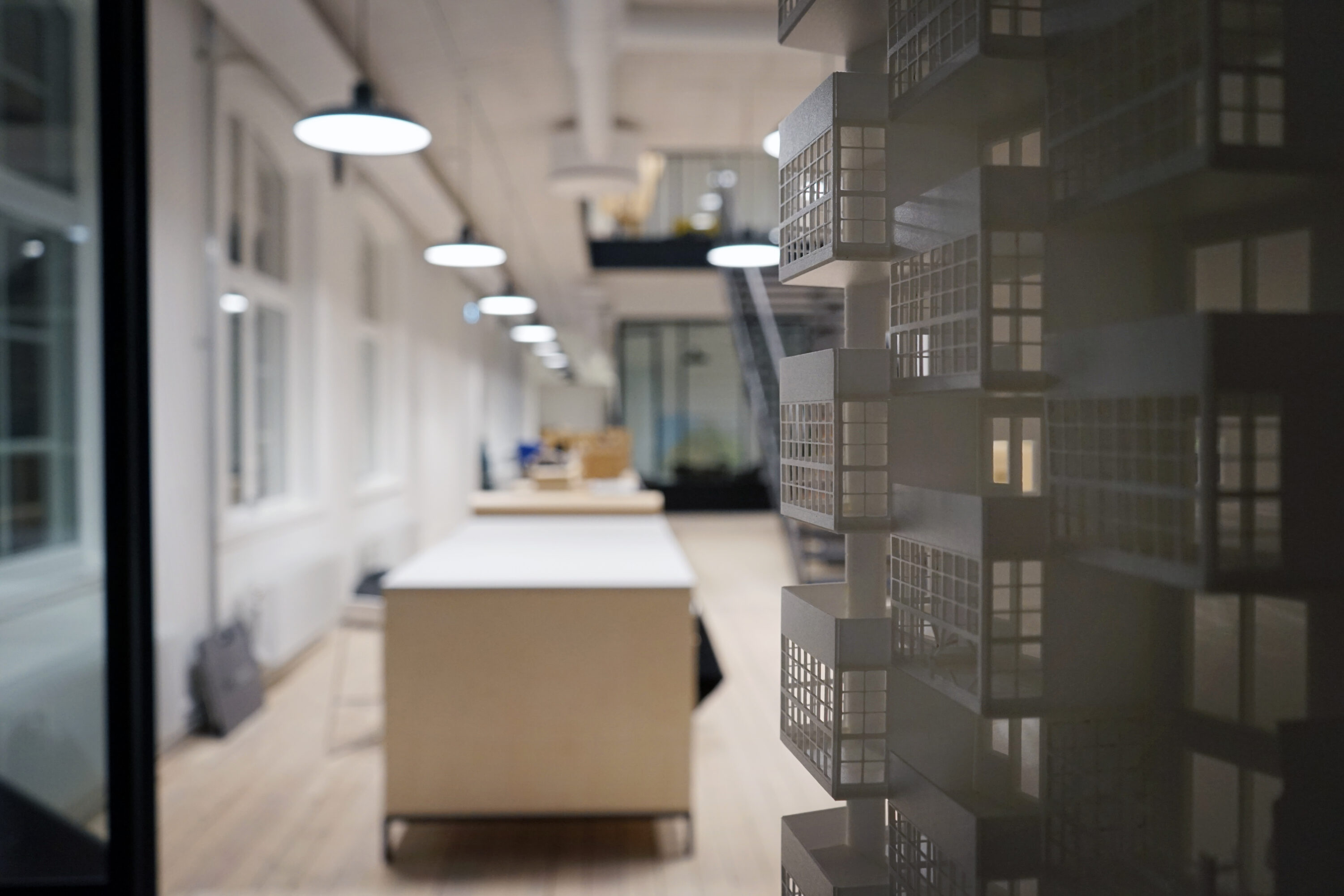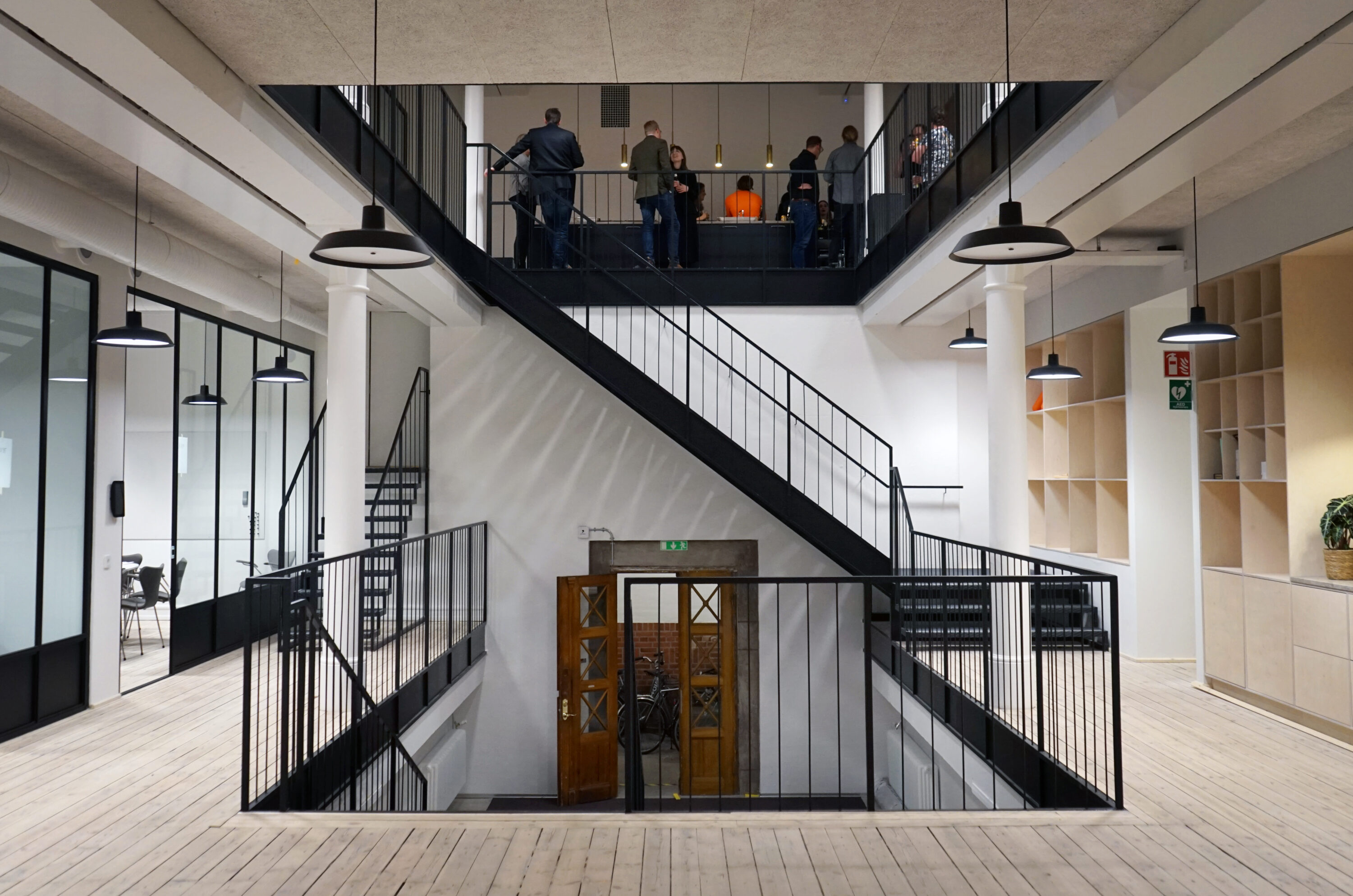2022-03-15
FOJAB moves into century-old knitwear factory
Malmö's historic knitwear factory from 1901 has become an architectural office. In collaboration with Stena Fastigheter, FOJAB is renovating one of the most exciting neighborhoods in Möllevången and is now moving into part of the factory itself. It will also be one of Sweden's first climate-calculated redevelopment projects.
Traces of the heavy knitting machines are still visible in the plank floor. The ambition was to preserve the character of the beautiful factory building from 1901, both inside and out. The layout and technical solutions have been adapted to the building's conditions and as much material as possible has been reused.
- "We kept the technical installations to a minimum out of respect for the building. The windows have been restored to their original appearance, while we have added a discreet inner sash with solar shading," says responsible architect Kjell Adamsson.
As a test pilot for IVL Svenska Miljöinstitutet, Trikåfabriken will be one of the first redevelopment projects in Sweden to be climate calculated. Both the construction phase and operation are included in the calculation, and social aspects are also taken into account.
"The idea of recycling is also reflected in the interior design," says Lisa Mannheimer, responsible interior designer. The desks have been cut to size and given new - used - stands. Panels from their own storage have been sent to a carpentry workshop and turned into lunch tables.
- FOJAB also has a nice palette of furniture that we keep, design classics that have been with us for a long time and have a history," says Lisa Mannheimer.
FOJAB is one of Sweden's leading architectural firms with around 150 employees and offices in Malmö, Helsingborg and Stockholm. More than 100 people have the Malmö office as their base. The area of the new office is marginally larger than the old one. The big difference is the distribution of space. Social areas, meeting rooms and project rooms are now in greater focus, while personal workplaces are fewer. It has also been important to be able to meet varied needs, such as converting the café into an architectural salon for visitors.
- For us as architects, the renovation and development of existing buildings and environments will become increasingly important. The fact that we are sitting in an old building feels important and right," says office manager Carl Kylberg. "It's also fun to be part of the creative spirit that has long been the signature of the neighborhood, which we want to build on.


